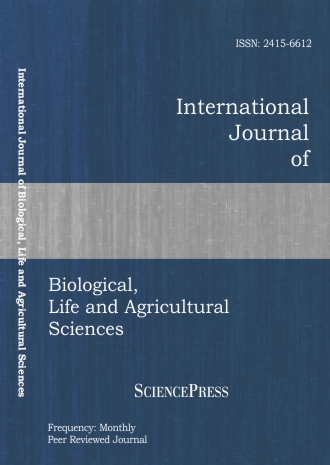
Scholarly
Volume:7, Issue: 5, 2013 Page No: 309 - 312
International Journal of Biological, Life and Agricultural Sciences
ISSN: 2415-6612
3631 Downloads
Economic Assessment of Green House for Cultivation of Float Based Seedling Production in India
In conventional seedling production, the seedlings are being grown in the open field under natural conditions. Here they are susceptible to sudden changes in climate were their quality and yield is affected. Quality seedlings are essential for good growth and performance of crops in main field; they serve as a foundation for the economic returns to the farmer. Producing quality seedling demands usage of hybrid seeds as they have the ability to result in better yield, greater uniformity, improved color, disease resistance, and so forth. Hybrid seed production poses major operational challenge and its seed use efficiency plays an important role. Thus in order to overcome the difficulties currently present in conventional seedling production and to efficiently use hybrid seeds, ITC Limited Agri Business Divisions - Sustainability Cell as conceptualized a novel method of seedling production unit for farmers in West Godavari District of Andhra Pradesh. The “Green House based Float Seedling" methodology aims at a protected cultivation technique wherein the micro climate surrounding the plant/seedling body is controlled partially or fully as per the requirement of the species. This paper reports on the techno economic evaluation of green house for cultivation of float based seedling production with experimental results that was attained from the pilot implementation in West Godavari District, Rajahmundry region of India.
Authors:
References:
[1] Development of green house performance index for float seedling